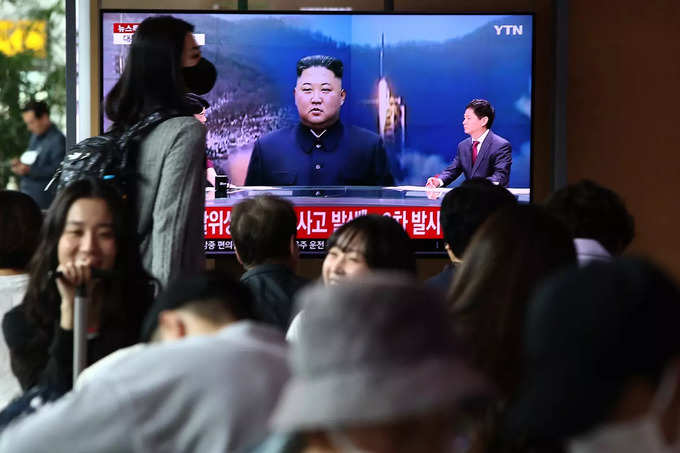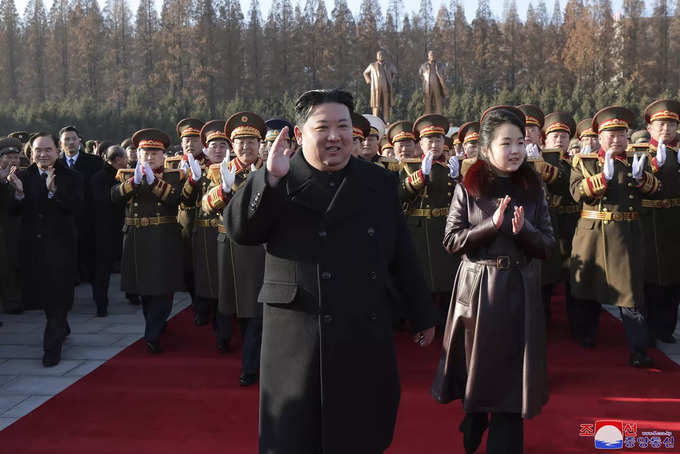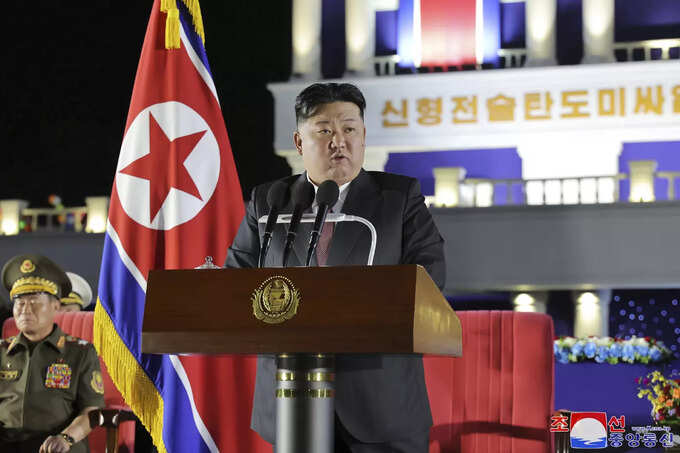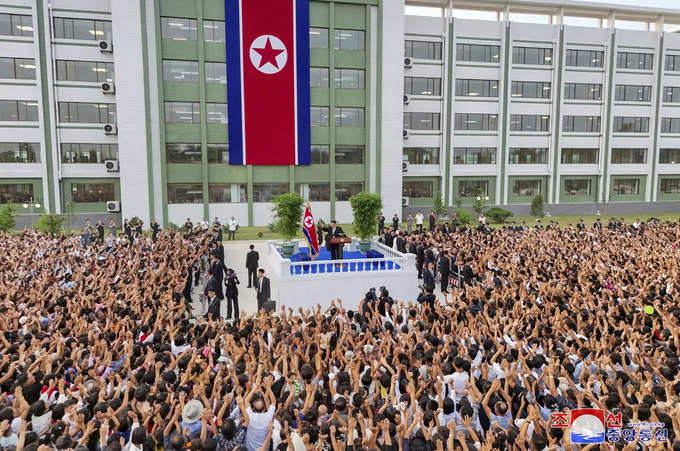While sports are often seen as a means of bringing nations together and celebrating human spirit, North Korea’s approach to athletics tells a different story. Recent reports suggest that North Korean athletes are facing severe repercussions for their performance and behavior at the Paris Olympics 2024. Despite bringing home six medals, the same as India, North Korea’s stringent policies toward its athletes continue to shock the global community.
Medals Won But Athletes Still in Trouble
North Korea sent a modest contingent of 16 athletes to the Paris Olympics, participating in seven different sports. The team managed to secure a total of six medals, including two silver. Despite this respectable achievement, some North Korean athletes may face punishment. Reports have surfaced that table tennis players Kim Kum-yong and Ri Jong-sik, who won medals, could be penalized for a seemingly harmless act—laughing in selfies with South Korean players. In North Korea, interacting with athletes from enemy nations like South Korea can be viewed as a betrayal, and these players might face harsh consequences after an official investigation.
Severe Punishments for Medal-less Athletes
It’s not just the medal winners under scrutiny. There are claims that athletes who failed to win any medals may also face severe punishments. North Korea, isolated from much of the world and ruled by the strict dictatorship of Kim Jong Un, often views poor athletic performance as an insult to the country. This attitude is consistent with North Korea’s reputation for harsh punishments and strict control over its citizens. A review of the athletes’ performances is expected, and decisions will be made based on the outcomes.

History of Harsh Treatment for Athletes
This is not the first time North Korea has treated its athletes harshly. Historical instances show that the regime has not hesitated to impose severe penalties on athletes who failed to meet expectations. One of the most shocking examples dates back to the 2012 Olympics. Successful athletes were rewarded with gifts such as televisions, refrigerators, luxury houses, and cars. However, those who failed to win medals were punished. They were reportedly sent to work in coal mines and had to endure a six-hour public criticism session, where they were humiliated for their perceived failure.

Football Team’s Fate After Poor Performance
North Korea’s football team has also faced the wrath of the regime. After a poor performance in the 2010 World Cup qualifying rounds, where they lost all three matches, the entire team was allegedly sentenced to hard labor, which involved life imprisonment with wages. The team’s coach received an even harsher punishment. Accounts from survivors of North Korean prison camps describe meeting these football players and witnessing their miserable conditions. Although FIFA investigated these allegations, concrete conclusions were never made public.

Another shocking instance occurred during the 2014 Asian Games, where North Korea played against South Korea for the first time since 1978. After losing 1-0 to South Korea, the North Korean football team was reportedly jailed, with some rumors suggesting they were awaiting execution. Although these reports remain unconfirmed, North Korean media at the time openly criticized the team, labeling them as “The Men Who Failed Us.” The reports even suggested that the football players should be executed for their poor performance, demonstrating the extreme measures North Korea is willing to take to punish athletic failures.
Common Forms of Punishment for Athletes
In North Korea, punishment for athletes who fail to meet expectations is common. The types of punishment vary but often include:
- Public Humiliation: Athletes may be subjected to public criticism and humiliation, designed to disgrace them in front of their families and peers. This practice is tightly controlled by the government and is intended to lower the credibility of the athletes.
- Re-Education Camps: Athletes who perform poorly may be sent to re-education camps, where they undergo harsh criticism and are often forced to do manual labor. These camps are intended to instill discipline and loyalty to the state.
- Loss of Privileges: Athletes who fail to deliver may lose privileges such as better housing, food rations, or opportunities to travel abroad for tournaments. This loss of privilege serves as both a punishment and a deterrent.
- Punishment of Family Members: In some cases, not only the athletes but their families also face punishment. The families may be subjected to the same harsh treatment as the athletes, including public criticism and loss of privileges.

The Isolated Reality of North Korean Athletes
While the rest of the world celebrates sportsmanship and honors athletes for their efforts, North Korean athletes live under constant fear of punishment. Their reality is one of strict scrutiny, where even a minor lapse can lead to severe consequences. This stark contrast highlights the oppressive nature of North Korea’s regime and the challenges faced by its citizens, even in areas as seemingly universal as sports.


